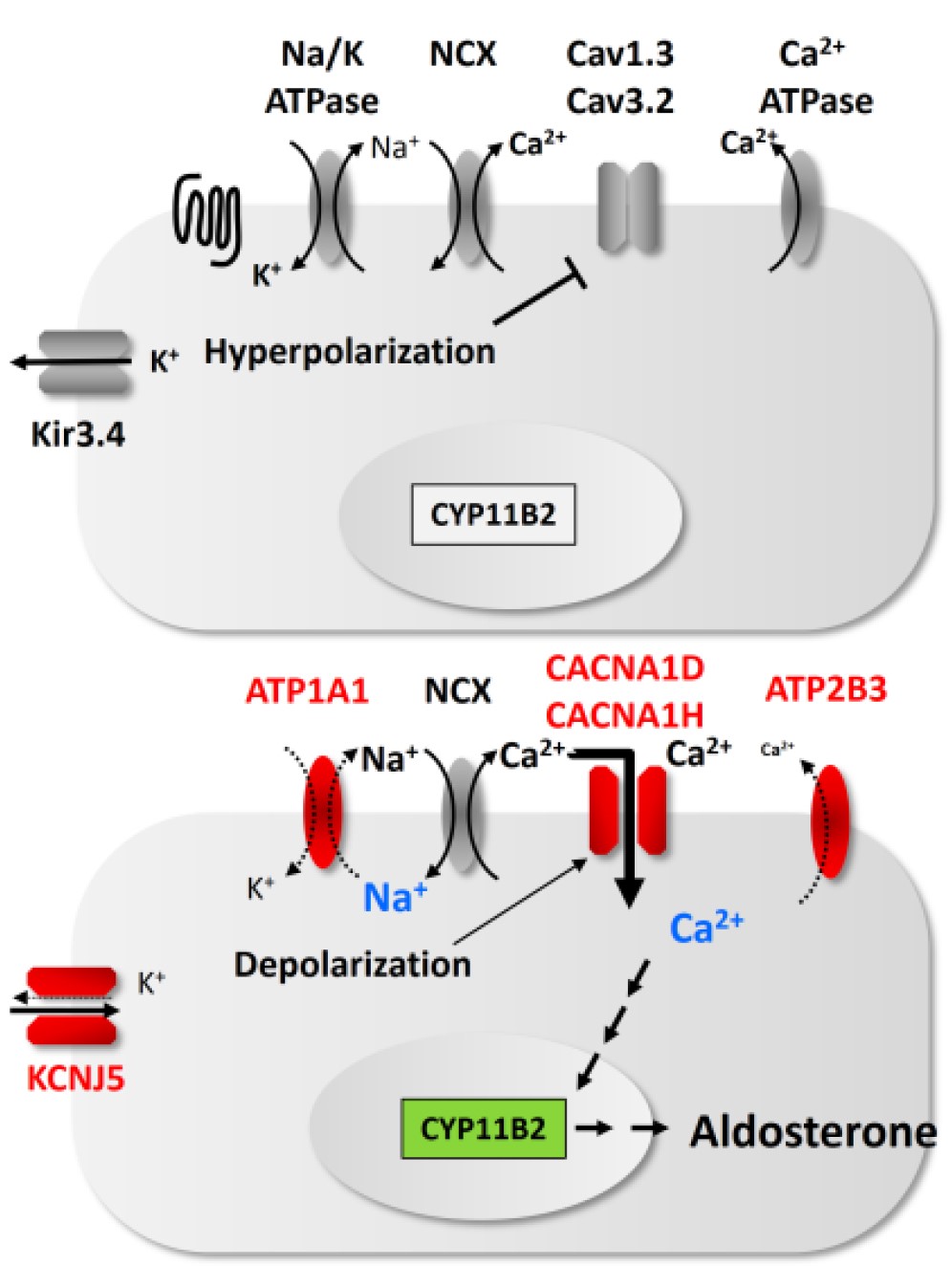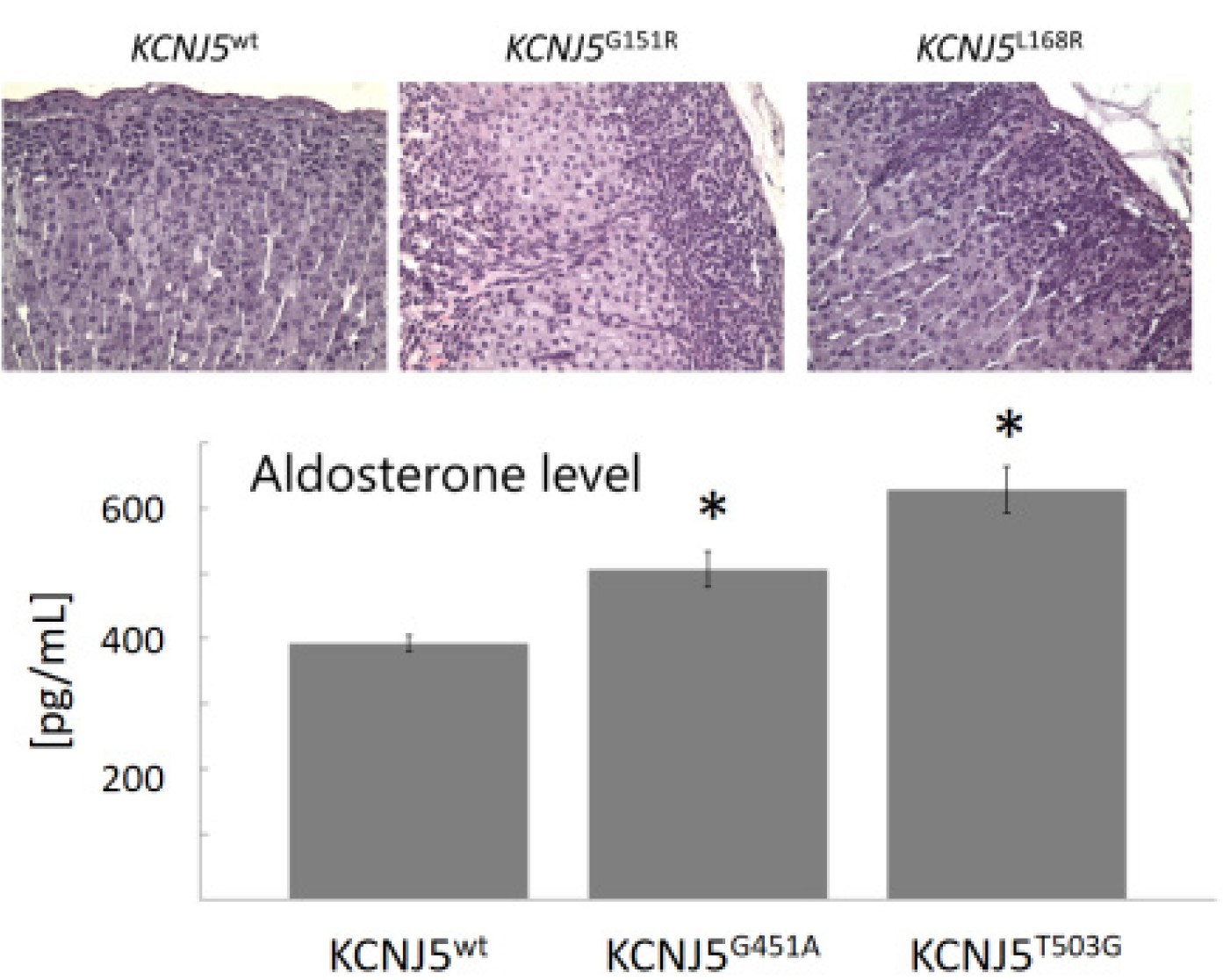Primary aldosteronism
Primary aldosteronism results from excessive aldosterone production by the adrenal glands. It is the most common secondary form of hypertension and causes electrolyte disturbances and high cardiovascular morbidity. Familial hyperaldosteronism as well as acquired forms results from gain-of-function mutations in ion pumps (ATP1A1, ATP2B3) and membrane channels (KCNJ5, CACNA1H, CACNA1D). The altered membrane permeability to cations and disturbed cytoplasmic Ca2+ signaling, stimulate aldosterone synthesis.
We will perform a high-throughput pharmacological screen and design therapeutic cRNAs for in vitro identification of candidates that modulate gain-of function and validate hits in specific in vivo models.

Figure 1. Molecular mechanisms leading to autonomous aldosterone secretion in familial or sporadic forms of primary aldosteronism. Upper panel: name of the protein is represented; Lower panel: name of the mutated gene is included in red.

Figure 2. Primary aldosteronism phenotype. Upper left panel: H&E staining of adrenal glands indicating zona glomerulosa hypertrophy in KCNJ5G451A and KCNJ5T503G animals versus KCNJ5wt mice. Lower panel: increased baseline aldosterone levels in mutant animals.